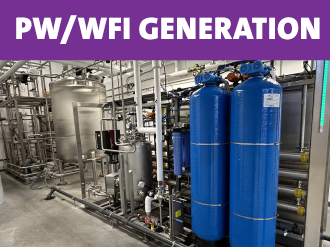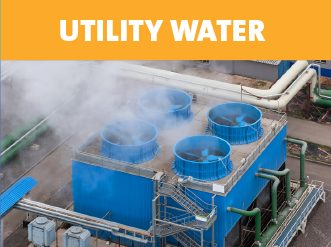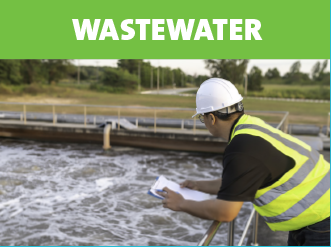END-TO-END SUSTAINABLE WATER SOLUTIONS
We empower pharmaceutical companies to achieve ambitious sustainability goals without sacrificing quality or performance.
END TO END SUSTAINABLE WATER TREATMENT
Our solutions empower pharmaceutical companies to achieve ambitious sustainability goals without sacrificing quality or performance.
Our Comprehensive End-to-End Water Solutions Include

End-to-End Water Management Masterclass for Pharma & Biotech
Cary (Raleigh), NC | Wednesday - October 23, 2024
Explore water purification tech, utility water, wastewater, and sustainability strategies. Gain insights, and enhance your facility's efficiency. Don't miss this opportunity to network with industry professionals and expand your knowledge.







Wastewater Treatment Guide
Leading industry experts have compiled a comprehensive e-book that provides overviews of the common wastewater technologies and processes for pharma wastewater tereatment.
Comprehensive End-to-End Technologies & Solutions
Veolia's end-to-end water treatment solutions encompass the entire water cycle, from pretreatment to pharmaceutical water purification, wastewater treatment, and water reuse. Our integrated approach ensures seamless water management, optimizing resource efficiency, minimizing environmental impact, and reducing operational costs.
Our Key Areas We Support Pharma & Biotech Companies:
> Pharmaceutical-Grade Water (Validated)
> Utility & Process Water Treatment
> Wastewater Treatment
Featured Technologies
CONTACT US TODAY TO DISCUSS YOUR
UPCOMING WATER TREATMENT CHALLENGE

Decarbonizing the Production of Low Endotoxin Water Guide
Compared to small-molecule drugs, therapeutic proteins produced by cell culture or microbial fermentation can use 10 to 100 times more water. This guide will discuss the importance of low endotoxin water and how energy-efficient technologies can create a pathway to decarbonization.
The Value of Partnering with an End-to-End Solutions Provider
Veolia is Experienced in Every Aspect of the Pharma Water Cycle
End-to-End Pharma Solutions
When it comes to water management, the pharma industry is expressing great interest in a solution that will solve all their daily water issues: pre-treatment, wastewater treatment, maintaining regulatory compliance, equipment maintenance and optimization, etc., for them to focus on their task at hand: medicine making.
Even though some processes are industry-specific or even company-specific, our experts have the knowledge and expertise to customize a solution for precise issues to make water management worries a thing of the past.
Pre-treatment, Utility, and process water
Pre-treatment is the removal of contaminants from raw water before the main water treatment process begins. Process water is therefore widely defined as water used in industry, manufacturing processes, utilities and similar applications. For the pharmaceutical industry, these waters must adhere to stringent regulatory requirements at all times.
Validated (USP) water
Validated pharma water is one of the major commodities used by the pharmaceutical industry and different grades of water quality are required depending on the usage. Pharmaceutical waters — those used in the drug manufacturing process — must comply with non-negotiable pharmacopoeia requirements. Orion™ is a pharmaceutical-grade water system that can produce PW/WFI validated water. The integrated process includes softening, reverse osmosis (RO) and continuous electrodeionization (CEDI) capabilities. An alternative technology that offers lower flows and portability is the IonPro™, which produces pharmaceutical-grade water for a variety of purposes.


Effluent Treatment
Pharma wastewater treatment is the process of removing biological or chemical contaminants, including micropollutant treatment, from effluent generated during the manufacturing process. Once treated, the water can either be released into the environment, discharged to the sewer or reused in plant processes; however, before these options become available, various biological, physical, and chemical treatment steps need to be taken to ensure the wastewater is treated to protect human health and biodiversity. Two high-performance technologies that can remove pollutants and micropolluants are the Biothane® Anaerobic Treatment System and the eXeno™ moving bed biofilm reactor.
Water Recycling & Reuse
While water reuse has several limitations in pharma, there are opportunities not only from an environmental and resilience standpoint but also as a way to significantly decrease the volume of water to be treated before discharge which significantly reduces costs. Evaled™ evaporators are industrial systems accelerating the natural evaporation process. They are suitable for pharmaceutical wastewater treatment to facilitate reduction and reuse.
Wastewater to Renewable (Green) Energy
Waste to resource/waste to energy — within our portfolio, our valorization technologies turn biogas into biomethane using membrane technology to purify raw biogas into suitable biomethane to meet the requirements of its final use. One megawatt-hour of produced biomethane avoids 0.22 tons of CO2 emissions. One such technology to help transform organic pollutants into bioenergy is the Biothane® Anaerobic Treatment System.
Services are Critical to Pharma Operations
Aquaservice™ is Veolia's comprehensive range of digital, chemical, mobile and spare part services that can be tailored to meet your requirements with additional bundles. Full-time, in-house service engineers, dedicated support staff and an experienced technical support team are all focused on ensuring your system is operating in line with specifications and meeting your operational requirements.




